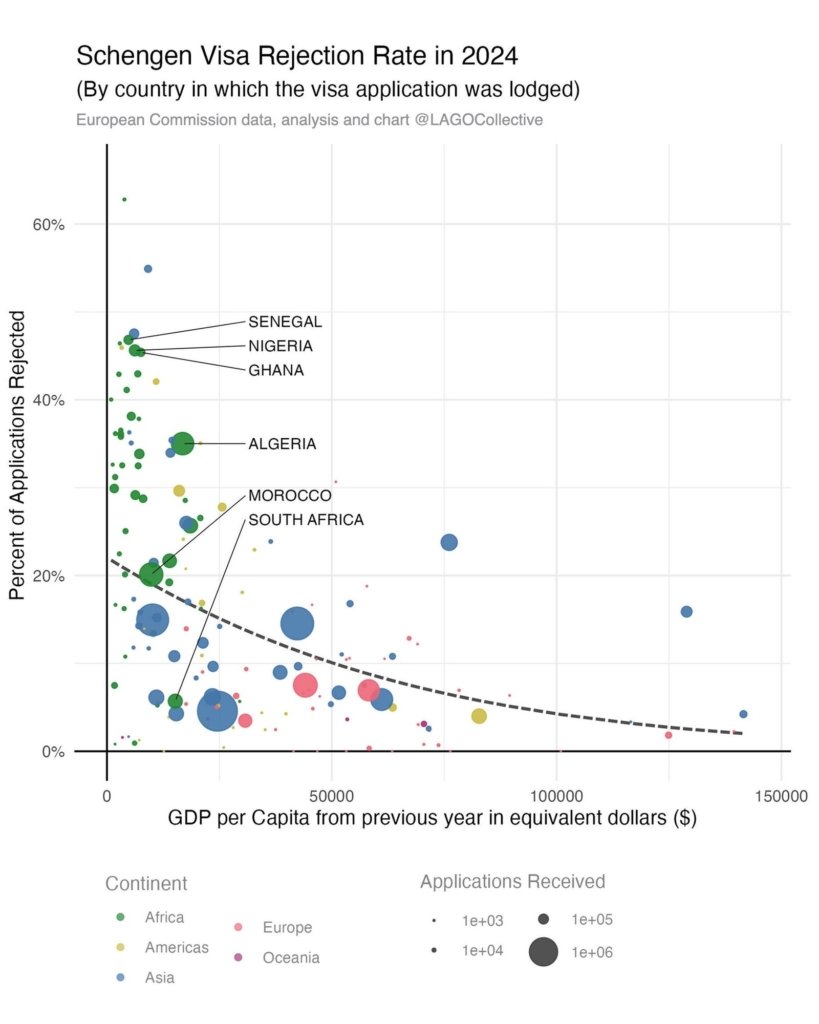KIGALI – Across Africa, citizens seeking to travel for work, education, tourism or family are facing some of the highest visa rejection rates in the world when applying to European countries, a trend that continues to restrict access to international opportunities and limit African mobility on the global stage.
According to a recent report by LAGO Collective, a London-based research and arts organization that has tracked visa trends since 2022, rejection rates for Schengen visas reached between 40% and 50 % in 2024 for applicants from Ghana, Senegal and Nigeria.
The financial impact is significant, with African nationals losing an estimated €60 million in nonrefundable visa fees in 2024 alone. “African countries are often outliers, with rejection rates well above what is expected by the regression line,” the report said.
Schengen visas remain a focus due to the number of European countries participating in the agreement. African applicants also report similar challenges when applying to the United Kingdom, with many citing unclear processes, long wait times and limited avenues for recourse after a rejection.
“We have been monitoring data on European short-term visa since 2022 and it’s clear that increasing visa inequality has very tangible consequences for low- and middle-income countries,” says Marta Foresti, founder of LAGO Collective and visiting senior fellow at think tank ODI Global.
“The financial cost of rejected visas is just staggering; you can think of the costs of rejected visas as ‘reverse remittances’, money flowing from poor to rich countries, which we never hear about,” she said in a press release issued Wednesday.
In mid-2024, Schengen visa fees increased from €80 to €90, adding another financial hurdle for applicants, particularly those from lower-income backgrounds.
As institutional access to Europe remains difficult, many across the continent ask whether it makes more sense to focus on movement, collaboration and connection within Africa rather than trying to gain entry to European countries.
Initiatives by the African Union to encourage visa-free travel between member states, combined with growing interest in intra-African trade and cultural exchange, suggest that the future of mobility for African citizens may depend more on continental cooperation than on access to Western destinations.
The LAGO Collective’s full report, titled “Rejected by GDP,” offers a data-driven look at the financial toll and systemic hurdles facing African visa applicants.
The research brings attention to long-standing inequities in global travel systems, which are often left out of larger discussions on international mobility.

*Schengen Short term Visa Rejection Rate in 2024 Credit: analysis by Marta Foresti, Verdiana Pasqualini and Otho Mantegazza


























